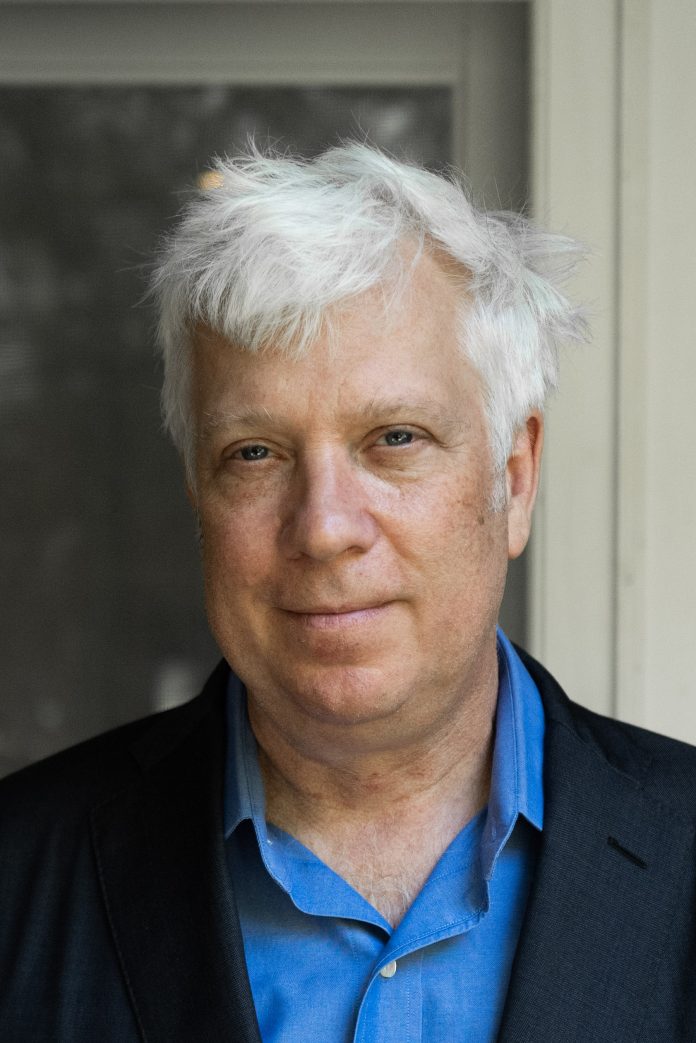
This fall, DePauw University welcomed JP Olsen as the new director of the Eugene S. Pulliam Center for Contemporary Media. Prior to working at DePauw, Olsen has had an extensive career in the media industry, where he has worked as a writer, journalist, filmmaker, producer, television executive, musician, and educator.
Olsen got his Bachelor’s from Ohio Wesleyan University, where he majored in English. He received his Master’s of Science in journalism and documentary from Columbia University. His journalism experience includes reporting for All3Media and working as a writer, producer, and director of programming at PBS. Olsen was also a producer and writer for “Retro Report,” a documentary series presented on The New York Times’ website.
Recently, Olsen worked as the director of original programming for HBO. From 2015 to 2021, he oversaw editorial operations for all of HBO’s unscripted programming, including but not limited to “Vice Weekly,” “Vice News Tonight,” “Wyatt Cenac’s Problem Areas,” and “Pod Save America.” During his time as director, “Vice News” won 23 Emmys for news and documentary and seven Peabody Awards.
As an undergraduate student at Ohio Wesleyan, Olsen attended the school’s New York Arts Program (NYAP), which he accredits with changing the trajectory of his life.
“I’m completely a product of the New York Arts Program, it changed the direction of my life. I came from a really small town in Ohio. I was raised by a single mom. There wasn't a lot of expectation about what I would do,” Olsen said. “When I went to Ohio Wesleyan and then went to the Arts program, I got to New York and I recognized opportunities of a kind that would have never been available to me had I not gone in that program.”
Years later, he came back to the New York Arts Program as an educator, where he met and taught his first students from DePauw University.
“When I was at HBO, I thought, ‘Well, I know some people, and I could probably help the program.’ Through some weird circumstances, I ended up teaching,” Olsen said. “The person who had my job left abruptly and they were in a lurch. They were like, ‘Would you mind doing this?’ I said, sure. I had a number of DePauw students, I think six DePauw students total, all of whom I'm in touch with still.”
Olsen recently decided to leave New York to further his career as an educator. That’s when he first became interested in working at DePauw University. Coming from a small liberal arts college himself, he saw DePauw as a perfect fit.
“Although it's a different campus, it's Methodist, and it's liberal arts, I think there's a similar esprit de corps around the whole idea of a liberal arts education, which I am a product of,” Olsen said. “I'm also a product of the Midwest and I'm very proud of that. I think liberal arts is a great foundation for a journalist, filmmaker, or any creative person. I think the combination of knowing the Midwest, knowing students from DePauw, and knowing the reputation of DePauw, made it an appealing choice. Now that I’m here, I couldn't be happier.”
As director, Olsen envisions the Pulliam Center as a space where students can practice creative expression and storytelling by experimenting with different mediums to produce media content.
“I would say, more than anything, I'm a passionate believer in storytelling and I love it. I've spent my life seeing the world through the lens of a storyteller, so I want to spread the word of that to other people that are interested in it,” Olsen said. “I look at the Pulliam Center as a sandbox or a playground where students are free to come in and just try things out, feel free to be themselves, and feel free to create. Maybe it works, and maybe it doesn't. The most important thing is trying, and being unafraid to try new things.”
The media industry is undergoing a transitional period Generation Z will see through. Olsen encourages all students who are interested in media and producing media content to come to the Pulliam Center and experiment, for we will be the ones to determine the future of media.
“We're in a new era. In terms of media, no one can predict what's going to happen in the next 10, 15, or 20 years. No one knows. If you ask someone, ‘What will the media landscape look like in ten years?’ No one really knows. And that's all the more reason that people should be unafraid to try new things in this space and give themselves permission to experiment, have fun, and play in the space of media,” Olsen said.


